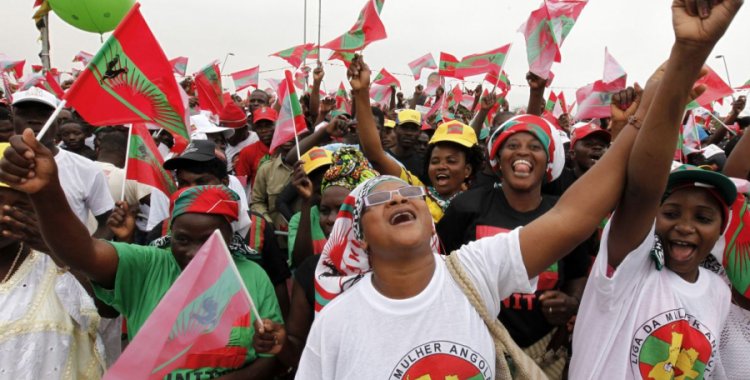According to the document that Lusa had access to, which asks for the declaration of unconstitutionality of the TC 679/22 judgment, in the guise of an Electoral Court, a series of evidence was not examined nor the Constitution of Angola was considered, and "the acts of the State are only valid if they conform to the Constitution".
The appeal was filed this Tuesday at the TC, on the eve of the inauguration of the re-elected President, João Lourenço, which is scheduled for the 15th of September.
The document of the National Union for the Total Independence of Angola (UNITA) invokes several grounds and says that "in the assessment of the electoral contentious appeal, the competent Court did not know, and must, in a remedial order, the nullities of the acts performed during the and national scrutiny of final election results".
It also mentions that there was a denial of justice, considering that the court abstained from judging, invoking the lack or obscurity of the law or alleging irremediable doubt about the facts in dispute.
Among other issues, UNITA claims that the (parties) competitors cannot be held responsible for having unintelligible minutes in their possession, since the method of attributing copies to list delegates (use of carbon paper) does not allow the content of the summary summary is visible from the third copy.
He also underlines that in the last elections, UNITA has always complained that the CNE creates difficulties in the application of the law on the delivery of copies of the minutes and that it has defended the placement of photocopiers in each polling station and stamping the minutes so that they can be readable.
"Therefore, the TC was partial in not asking why the summary minutes of the applicant, provided by the CNE, were unintelligible, nor did it demand a comparison between these and the original minutes in the custody of the CNE", it is emphasized in the same document.
For UNITA, the TC, by not having analyzed its evidence, comparing it to the minutes of the CNE reveals that "there is a clear denial of justice and the right to a fair trial and in accordance with the law has been violated".
UNITA argues, moreover, that "the audit's greatest contribution to the country is to strengthen public faith in the electoral process and in the institutions that organize it" and regrets that the TC has "disregarded" the Constitution, stressing that "the acts of the State are only valid if they conform to the Constitution".
Last Thursday, the TC denied the appeal filed by UNITA, stressing that the evidence presented "does not allow us to question the overall results" of the elections announced by the National Electoral Commission (CNE).
In the ruling, approved in plenary by eight judges, judge Josefa Neto, appointed by UNITA, voted unsuccessful, who in her statement mentions that the most important thing would be to check the electoral truth reflected in the polls, insofar as what is at stake is legitimacy of political powers, which, he maintains, has not been achieved.
"The Constitutional Court concludes that the evidence presented and considered to be compliant does not allow the global results of the national count of votes presented by the National Electoral Commission to be called into question", reads the judgment.
The judgment states, on page 6, that the applicant (UNITA) "enclosed in the case file alleged summary minutes of repeated polling stations (duplicated, triplicated, quadrupled), false, erased, tampered with, without discrepant polling station codes as to content, written on A4 paper and unintelligible".
"These are not credible or serviceable elements to support the claim required", the document stresses.
According to the final tabulation minutes of the August 24 general elections, the Popular Movement for the Liberation of Angola (MPLA) and its candidate, João Lourenço, were the winners with 51.17 percent of the votes, followed by the National Union for Total Independence of Angola (UNITA) with 43.95 percent.
With these results, of the total of 220 deputies, the Popular Movement for the Liberation of Angola (MPLA) elected 124 and UNITA 90, almost twice as many as in 2017. The Social Renovation Party (PRS), the National Liberation Front of Angola (FNLA) and the debuting Humanist Party of Angola (PHA) to elect two deputies each.
UNITA together with the Democratic Bloc (BD) filed a contentious electoral appeal with the Angolan Constitutional Court pointing out alleged "irregularities in the process".







